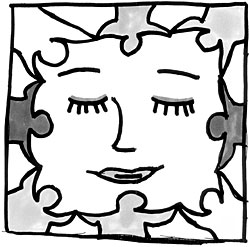About 10 years ago, I was going through a bad time in my marriage. One night when my husband abused me, I called the police and they took my children and me to the hospital for an examination.
took my children and me to the hospital for an examination.
Child protective services (CPS) did a quick assessment and decided to take my three children. They never let me take my kids home from the hospital or even say goodbye. I was lost.
If it wasn’t for a good friend of mine, I don’t know what I would’ve done. She wrote letters and called lawyers. With her support, I asked for visits and started bugging the department for counseling for my kids and for myself. Luckily my kids were returned in 45 days, but the episode was traumatic for my kids and me.
To provide that support to other parents, I’ve worked with a group in Massachusetts to develop a guide, called “You Are Not Alone,” which explains the child welfare system and parents’ rights. It includes a list of resources and quotes from parents.
Child protective workers tend to forget that parents need information and support right away. Sometimes it takes weeks between when the department takes your kids and when you make contact with your worker. If a parent doesn’t have support or a sense of control, she looks for what she needs in the bottom of a bottle or in whatever vice she knows.
To get the guide out to parents, we have presented to child protection and family court staff and to parent attorneys. Our biggest breakthrough is that the family courts agreed to distribute the guide to all parents whose children are placed in foster care due to abuse and neglect.
CPS can be very intimidating. Parents tell us, “The social workers want you to sign a service plan, and you don’t understand it but you don’t want to anger them, and you’re not sure what your rights are, so you sign.” Parents will sign over their lives if they don’t know their rights. They just need someone—even a booklet—to say, “Don’t freak out, don’t lose it. Here’s how you can get it together.”
